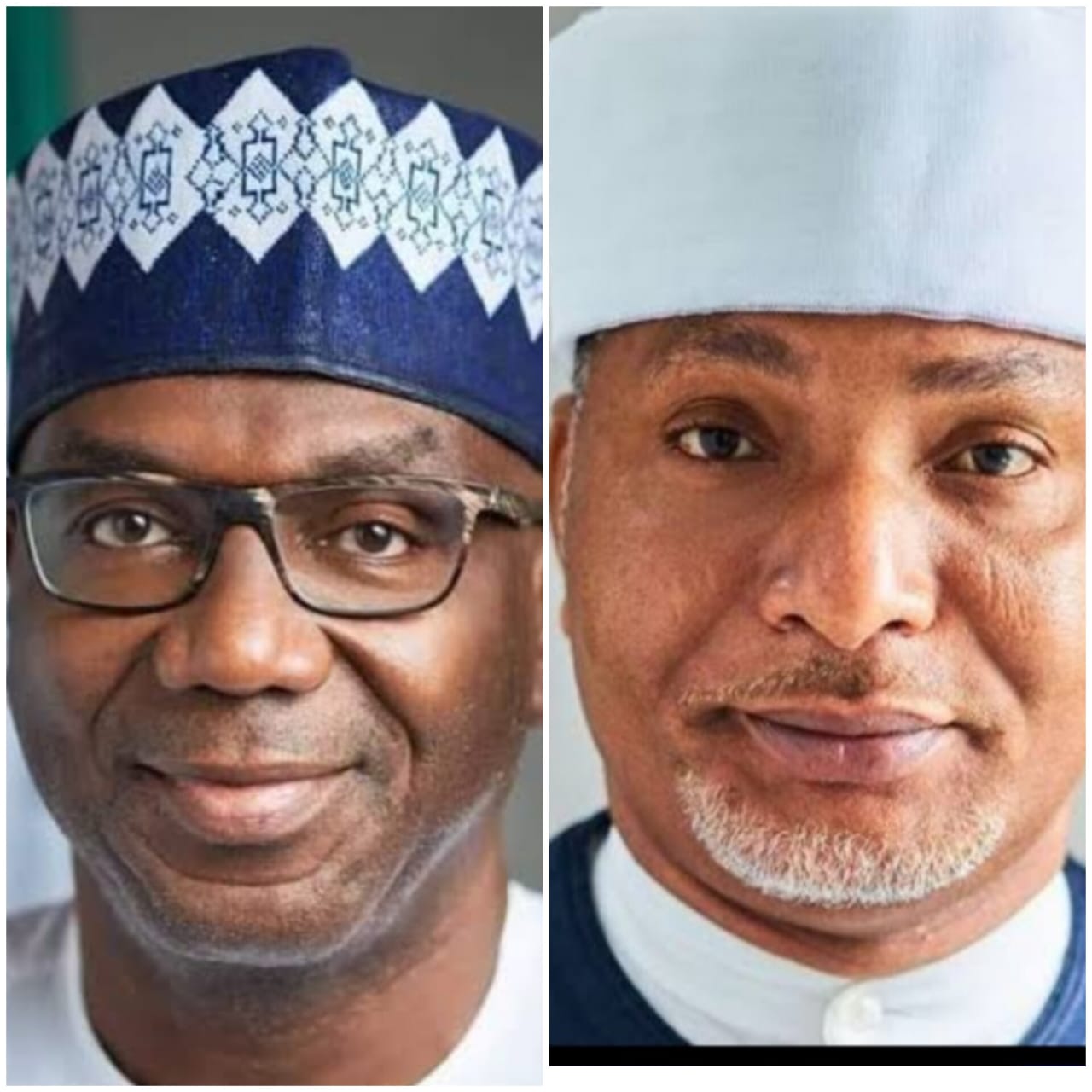By O.T. Muhideen
Kwara State boasts a rich and intricate political history that spans several decades. Each electoral cycle has unfolded like a dramatic showdown, characterized by fierce contests between prominent political figures, whether they hail from the same party or rival factions.
The narrative of Kwara’s political landscape is punctuated by notable confrontations. In 1983, a gripping battle ensued between the late Dr. Olushola Saraki and the then-sitting governor, the late Adamu Attah, both members of the National Party of Nigeria (NPN). Fast forward to 2003, we witnessed yet another intense political clash, this time between Dr. Olusola Saraki and the late Alabi Lawal, both representing the All Nigeria Peoples Party (ANPP), before Saraki’s eventual shift to the People’s Democratic Party (PDP).
The year 2007 was marked by a contest between Dr. Bukola Saraki and Hashim Olawepo of the Democratic Peoples Party (DPP), while 2011 brought a unique dynamic as Dr. Bukola Saraki faced off against his own father, Olusola Saraki, amidst a competitive fray with Dele Belgore, SAN, from the Action Congress of Nigeria (ACN).
In 2015, the political arena saw Abdulfatah Ahmed going head-to-head with S.S. Ajibola, unveiling another layer of rivalry. The year 2019 ushered in a transformative moment known as the “Otoge” movement, where an unprecedented battle emerged between the masses and the entrenched Saraki dynasty, culminating in a significant turning point for the state.
In 2023, the political scene was set ablaze with a confrontation between Governor Abdulrahman Abdulrazaq and Alhaji Lai Mohammed’s Aanigba group, showcasing yet another chapter in Kwara’s ongoing saga of rivalry and ambition. This is Kwara, a state rich in political drama and traditions that shape its identity.
History serves as a meticulous record keeper, documenting the intricate tapestry of political rivalries that have unfolded over time. One notable thread that weaves through these conflicts is the fact that they often originated within the same political party. This shared foundation provided a fertile ground for those who felt aggrieved or marginalized to leverage the existing party structure and dynamics in their pursuit of justice and recognition. While some individuals successfully navigated the choppy waters of intra-party politics and emerged victorious by transitioning to another party’s platform, many others faced defeat in their struggles for power and representation. The narrative of these battles illustrates the complex interplay of ambition, loyalty, and the quest for authority within the realm of politics.
As we approach 2027, the political landscape is poised for significant developments, particularly in light of the early onset of political rivalries that began in 2024. This analysis aims to explore these dynamics, focusing on the notable rivalry between Governor Abdulrahman Abdulrasaq and his brother, Senator Saliu Mustapha, who serves the people of the Kwara Central Senatorial District.
In the lead-up to the 2023 elections, the relationship between these two politicians grew stronger. After securing the senatorial ticket, Saliu played a crucial role in fervently campaigning for the governor. His support at campaign events demonstrated a commitment to their shared political goals, even as the governor faced challenges from the AANIGBA group. It’s worth noting that the governor also backed Saliu’s senatorial bid, despite a considerable portion of the electorate favoring Senator Oloriebe due to his commendable legislative contributions.
These developments reveal the complexities of political alliances and the evolving landscape in Kwara, setting the stage for the coming years.
Where I come from,elders often impart wisdom through proverbs, one of which resonates deeply: “Bí ọwọ́ ọmọdé kò tó pẹpẹ, ti àgbàlagbà kòlè wọ akèrèngbè.” This translates to “If a kid’s hand fails to reach the peak of a cupboard, that of an adult cannot enter a gourd.” This saying underscores the idea that certain heights or achievements are beyond reach, particularly when there are factors at play that limit access or opportunity.
Recently, Kwara politics has become quite tumultuous, particularly marked by an ongoing conflict between Turaki and Governor AA. This altercation has escalated over the past few months and has garnered significant attention, jabs, and insults from supporters of both gladiators. Central to this dispute is the governor’s alleged maneuvering to take the senatorial seat away from Salihu, who has long been a prominent figure in the political arena.
Rumors have surfaced, suggesting that Salihu was contemplating stepping into the role of Governor, offering his senatorial seat in exchange for governorship. However, this proposition was met with strong resistance from Abdulrahman, who viewed Salihu’s ambitions as unacceptable and detrimental to his own political structure, in some quarter, its believed that the governor is considering a succesor from Kwara North who have not been governor since the return of democracy. As the tensions between these political figures continue to rise, the implications for their constituencies and the political landscape as a whole remain to be seen.
As someone who understands the political history of Kwara and Nigeria as a whole, it is important to analyze the tense situation within the ruling All Progressives Congress (APC). Senator Saliu has been fighting for his political survival and has faced significant frustration. One notable incident was the removal of his season’s greetings billboards across Kwara following the IEDPU’s annual events. This move was accompanied by propaganda that alleged he had defected to the People’s Democratic Party (PDP) after he exchanged greetings with former Senate President Bukola Saraki at the wedding of Mufty’s children.
Most recently, some APC executives have openly accused Senator Saliu of aligning himself with the PDP. In response, Senator Saliu’s camp has consistently launched counter-propaganda to defend their principal. Unfortunately, the primary target of their propaganda has been Rt. Hon. Yakubu Danladi, the Speaker of the Kwara State House of Assembly and the new political ally of Governor.
Currently, there are growing concerns regarding the political landscape surrounding Senator Mustapha. Reports suggest that if the ongoing issues remain unresolved, he may be compelled to leave the party in order to safeguard his political future. Such a departure would not only render the party significantly weaker but would also diminish Senator Mustapha’s own political influence and resilience.
The situation at hand seeks a critical need for reconciliation between Senator Saliu and Governor AA. Their ongoing conflict poses a serious threat to party unity, and finding a resolution is essential. If the rift persists without any form of settlement, it could compromise the party’s chances of success in the upcoming 2027 elections.
Thus, it is evident that the most effective approach to addressing these internal divisions is through dialogue and compromise. Failing to act on this front will create substantial challenges for the party moving forward, potentially undermining its overall effectiveness and electoral prospects.
To be continued…
Ojediran Temitope Muhideen is the publisher of Confidence News Nigeria and a member of Greenfield Library Limited, Atlanta, USA.


